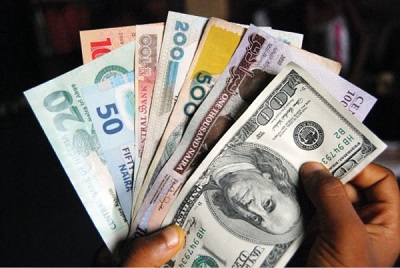Budget: FG to spend N1.16tn more in 2018

The country’s national budget will rise by N1.16tn in 2018, according to projections contained in the 2018-2020 Medium Term Expenditure Framework and Fiscal Strategy submitted to the National Assembly by President Muhammadu Buhari.
The President forwarded the MTEF/FSP to the National Assembly on Tuesday, with a covering letter read to members of the House of Representatives by the Speaker, Mr. Yakubu Dogara.
Details of the MTEF, which The PUNCH obtained in Abuja on Thursday showed that the Federal Government would spend N8.60tn next year, up from the N7.44tn appropriated in 2017.
The difference of N1.16tn represents a “15.5 per cent” increase over the budget of the current year.
This will also mean additional deficit in the 2018 budget size of up to N592.75bn or “25.0 per cent” over the N2.36tn deficit contained in the 2017 budget.
In 2016, the country’s budget was N6.06tn.
The details of the MTEF reveal that the anticipated aggregate revenue to fund the 2018 budget will be N5.65tn “or 11.0 per cent or N562.50b over the 2017 estimate of N5.08tn.”
Major expenditure heads include N12.12tn for recurrent and N2.03tn for capital expenditure.
The government projects the country’s Gross Domestic Product to grow by 3.5 per cent in 2018, but inflation will “moderate to 12.42 per cent.”
The government arrived at this, using a crude oil production projection of 2.3 million barrels per day in 2018, with a benchmark price of $45 “and an average exchange rate of N305/$1.”
Daily oil production is expected to be 2.4mbpd in 2019 and 2.5mbpd in 2020.
In 2017, oil production suffered setbacks before it later climbed to 2.2mbpd. The benchmark for 2017 was $44, while the exchange rate was also N305/$1.
Generally, the government hopes that oil production will rise, owing to improved security and consultations with groups in the Niger Delta region.
For instance, it said pipeline vandalism dropped to 94 points in April 2017, compared to 214 vandalised points in the same period in 2016.
The document added, “The nominal GDP is expected to increase from N104.79bn in 2017 to N134.7bn in 2020.
“Similarly, consumption expenditure is projected to grow from N83.66 in 2018 to N107.77bn in 2020. These are reflective of a gradual recovery of the economy.”
The MTEF merely gives a general outlook of the government’s plans for 2018-2020.
Specific details, particularly in respect of the 2018 budget, are expected to be contained in the estimates of the budget that will soon be presented to the National Assembly by Buhari.
By the provisions of the Fiscal Responsibility Act, 2007, the National Assembly is to first consider and approve the MTEF/FSP before the estimates of the budget will be presented to lawmakers.
Meanwhile, the House in plenary asked the government to recover the $14.29bn gas flare fines owed the country by International Oil Companies from 2008 to 2016.
The House also called for a status report on the damage caused by gas flaring in affected communities.
The resolution was passed following a motion moved by a member from Edo State, Mr. Johnson Agbonayinma, and six other lawmakers.
The motion read partly, “The House is aware that the Federal Government, in a bid to discourage gas flaring and encourage the redirection of gas flared from waste to wealth, and to save the environment and the lives of the people living in the gas flared environment, imposed a penalty of $3.5 per 1000 SCF of gas flared by oil companies.
“(The House is) also aware that the Deputy Director and Head, Upstream of the Department of Petroleum Resources, while speaking at a conference in Houston, Texas, USA, recently, said that the country had lost $14,298bn between April 2008 and October 2016 in form of penalties for gas flaring, which the IOCs failed to pay.
“In a similar vein, the Nigeria Extractive Industries Transparency Initiative, in its latest Oil and Gas Audit Report, noted that firms operating in the country had failed to abide by the regulating penalty of $3.5 for every 1000 SCF of gas flared by oil companies.
“(The House is) concerned that multinational oil companies, which adhere strictly to internationally acceptable environmental best practices in their countries and other parts of the globe, have refused to pay the agreed penalties on gas flared in Nigeria.”
Copyright MMS Plus.
All rights reserved. This material, and other digital content on this website, may not be reproduced, published, broadcast, rewritten or redistributed in whole or in part without prior express written permission from KINGS COMMUNICATIONS LIMITED.







